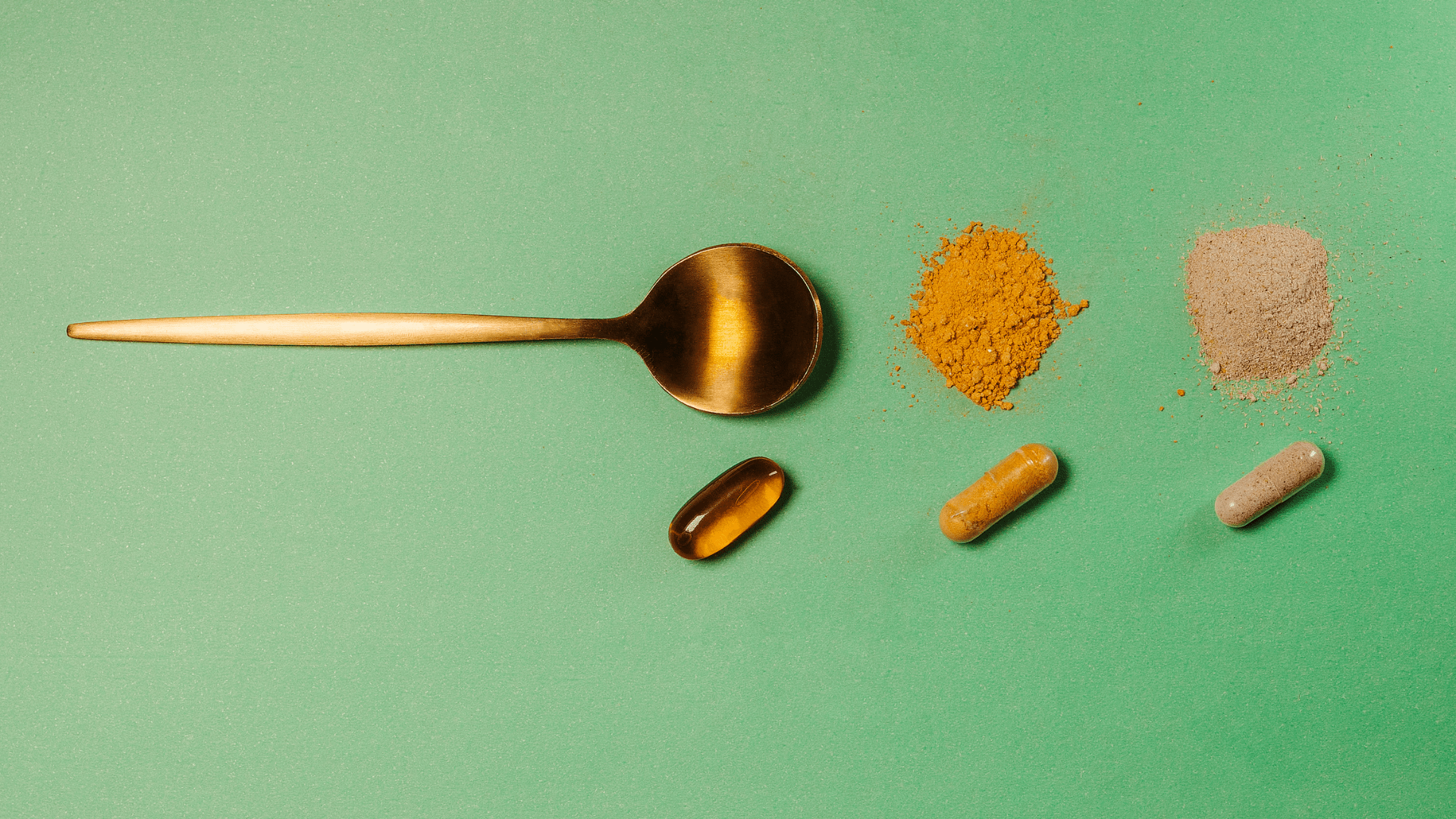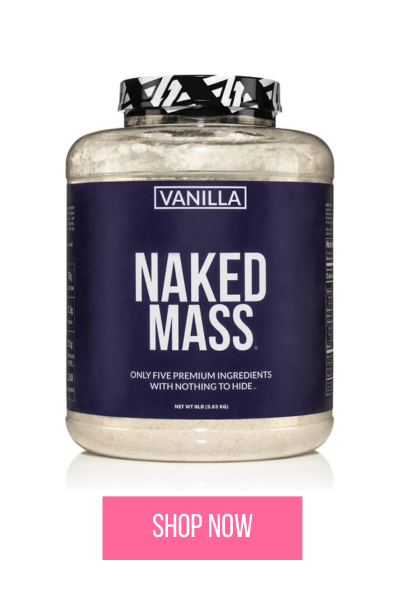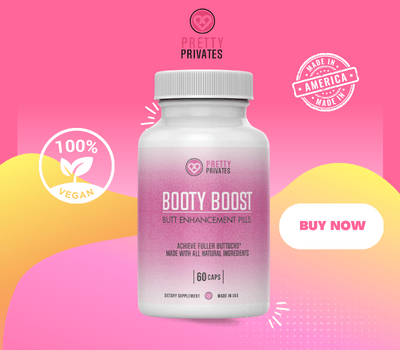Best Vitamins to Build Muscle Growth: Boost Your Gains

Are you looking to maximize your muscle gains? Wondering which vitamins and protein supplements can help you achieve your muscle growth goals and weight gainers for muscle gain? Proper nutrition, including enough protein from protein supplements, plays a vital role in supporting muscle growth during weight training exercise programs. Certain vitamins and minerals are also essential for muscle development.
It’s not just about hitting the gym hard. To optimize muscle tissue repair, growth, and overall performance, it is important to provide your body with enough protein. Incorporating whey protein into your exercise program can help ensure you are consuming the necessary calories for optimal results. Vitamins like vitamin B12 are crucial for exercise performance, proper muscle contraction, and energy production. Minerals like calcium, magnesium, and potassium play a vital role in maintaining strong and healthy muscle cells. It is also important to ensure you consume enough protein for optimal exercise performance. Iron, magnesium, and vitamin B12 are necessary for oxygen transport through red blood cells, ensuring optimal endurance during workouts at the gym. Vitamin deficiencies can hinder performance.
Discover how magnesium, iron, and calories impact your muscles, their effects on performance, and what happens when there is a deficiency. Research has shown the importance of these nutrients for optimal muscle function. Get ready to take your muscle building and muscle gain journey to the next level with the power of proper nutrition! Achieve your muscle growth goals by focusing on consuming the right amount of calories.
Importance of Essential Amino Acids for Muscle Recovery
Amino acids play a crucial role in muscle repair and recovery, making them essential for anyone looking to build muscle growth. Additionally, research has shown that iron and vitamin deficiency can hinder muscle growth. Therefore, it is important to ensure that you are meeting your body’s need for these nutrients. These building blocks of protein, rich in iron, are responsible for rebuilding and repairing muscles after intense workouts. Research shows that consuming enough calories is crucial for maintaining a healthy weight. Among the various types of amino acids, essential amino acids are particularly important for muscle gain as they cannot be produced by the body and must be obtained through diet or supplementation. This is where iron from the pharmacy comes into play, as it is crucial for weight management.
Amino acids aid in muscle repair and recovery.
After an intense workout, our muscles undergo microscopic damage. This is where amino acids step in to help with muscle gain and the repair process. They can be found at your local pharmacy. Amino acids act as the building blocks for protein synthesis, which is necessary for muscle tissue repair. By providing the necessary materials, amino acids support the regeneration of damaged muscle fibers and promote faster recovery.
Essential amino acids are crucial for rebuilding muscles.
While all amino acids play a role in muscle recovery, essential amino acids (EAAs) are especially vital. EAAs, essential for muscle gain, include nine specific amino acids that cannot be synthesized by our bodies on their own. These include histidine, isoleucine, leucine, lysine, methionine, phenylalanine, threonine, tryptophan, and valine. Ensuring an adequate intake of these essential amino acids is key to promoting optimal muscle growth and repair.
Role of amino acids in reducing muscle soreness post-workout.
One common side effect of intense exercise is delayed onset muscle soreness (DOMS), which can make it difficult to perform subsequent workouts or daily activities comfortably. Fortunately, amino acid supplementation has been shown to alleviate this discomfort by reducing inflammation and aiding in the removal of waste products from muscles. By mitigating DOMS symptoms, amino acids enable individuals to recover more quickly and continue their fitness journey without unnecessary pain or discomfort.
How essential amino acids support the growth of lean muscle mass.
Building lean muscle mass requires not only regular strength training but also adequate nutrition. Essential amino acids play a crucial role in this process by stimulating muscle protein synthesis and promoting the growth of lean muscle tissue. Leucine, in particular, has been identified as a key amino acid for triggering protein synthesis and maximizing muscle growth. By incorporating essential amino acids into their diet or supplementation routine, individuals can optimize their muscle-building potential.
Harnessing the Power of Branched-Chain Amino Acids (BCAAs) for Muscle Growth
BCAAs, or branched-chain amino acids, are an essential tool in the quest to build lean muscle mass. These powerful compounds play a crucial role in promoting protein synthesis and muscle growth, making them a must-have supplement for anyone looking to maximize their gains at the gym.
BCAAs promote protein synthesis and muscle growth
Protein is king. BCAAs are unique because they contain three essential amino acids: leucine, isoleucine, and valine. These amino acids serve as the building blocks for proteins in your body and are especially effective at stimulating muscle protein synthesis.
By taking BCAAs before or after your workout, you provide your muscles with the necessary fuel to repair and grow. This increased protein synthesis leads to greater gains in lean body mass over time. So if you’re looking to pack on some serious muscle, incorporating BCAAs into your supplement routine is a smart move.
Benefits of BCAAs in reducing exercise-induced fatigue
In addition to promoting muscle growth, BCAAs also offer significant benefits. When you push yourself during intense workouts, your body produces tryptophan—an amino acid that can make you feel tired and fatigued.
However, by supplementing with BCAAs, you can actually reduce the amount of tryptophan that enters your brain. This helps combat fatigue and allows you to train harder for longer periods without feeling completely drained.
Leucine, isoleucine, and valine: the key components of BCAAs
Let’s break down the three key components of BCAAs: leucine, isoleucine, and valine.
- Leucine: Known as the “king” of amino acids, leucine is the most important component of BCAAs. It activates a protein called mTOR, which plays a crucial role in stimulating muscle protein synthesis.
- Isoleucine: Isoleucine helps regulate blood sugar levels and energy production during exercise. It also aids in the recovery process by increasing glucose uptake into cells, providing your muscles with much-needed fuel.
- Valine: Valine works together with leucine and isoleucine to promote muscle growth and repair. It also has a role in regulating nitrogen balance in the body.
How BCAAs enhance endurance and reduce muscle breakdown
BCAAs are not only beneficial for building muscle but also for improving endurance during workouts. When you engage in prolonged or intense exercise, your body may start breaking down muscle tissue for energy. This can hinder your progress towards building lean muscle mass.
However, by supplementing with BCAAs, you provide your body with an alternative source of energy. BCAAs can be used as fuel during exercise, sparing your precious muscle tissue from being broken down. This helps preserve lean body mass and allows you to train harder without sacrificing gains.
BCAAs have been shown to reduce markers of muscle damage following intense exercise. By minimizing post-workout muscle breakdown, BCAAs aid in the recovery process and allow for faster repair and growth.
Beta-Hydroxy Beta-Methylbutyrate (HMB): Supercharging Muscle Development
HMB, short for Beta-Hydroxy Beta-Methylbutyrate, is a powerful supplement that can aid in increasing lean body mass and promoting muscle growth. When combined with a proper exercise regimen, HMB has shown promising results in enhancing strength gains during resistance training.
One of the key benefits of HMB supplementation is its ability to reduce exercise-induced muscle damage. Intense workouts can often lead to microscopic tears in the muscle fibers, causing soreness and inflammation. HMB helps alleviate this damage by supporting muscle repair and reducing recovery time.
By reducing muscle damage and promoting recovery, HMB allows individuals to train harder and more frequently. This means faster progress towards building lean muscle mass and achieving fitness goals. With regular use of HMB, individuals may experience increased endurance and improved performance during intense workouts.
In addition to its role in minimizing exercise-induced muscle damage, HMB also plays a crucial role in preserving existing muscle tissue. During periods of calorie restriction or intense training, the body may break down muscle tissue for energy. However, studies have shown that HMB can help prevent this breakdown by stimulating protein synthesis and inhibiting protein degradation.
Let’s take a closer look at the benefits of incorporating HMB into your fitness routine:
Increased Lean Body Mass
HMB has been found to have positive effects on increasing lean body mass when combined with resistance training. It works by enhancing protein synthesis while inhibiting protein breakdown, creating an environment conducive to muscle growth.
Strength Gains
Supplementing with HMB has been shown to enhance strength gains during resistance training. This means that individuals who incorporate HMB into their workout routine may experience improvements in their ability to lift heavier weights or perform more repetitions.
Reduced Muscle Damage
Intense exercise can cause micro-tears in the muscles, leading to soreness and inflammation. HMB has been found to reduce exercise-induced muscle damage, allowing for faster recovery and less downtime between workouts.
Faster Recovery
HMB promotes muscle repair and reduces recovery time, enabling individuals to bounce back quickly from intense training sessions. This means less time spent feeling sore and more time spent making progress towards achieving fitness goals.
Preserves Muscle Mass
During periods of calorie restriction or intense training, the body may turn to muscle tissue for energy. HMB helps prevent this breakdown by preserving existing muscle mass and promoting protein synthesis.
It is important to note that individual results may vary. It is always recommended to consult with a healthcare professional or a registered dietitian before starting any new supplement regimen.
Glutathione: The Ultimate Antioxidant for Muscle Health
Strength Training Exercises
Glutathione, often referred to as the ultimate antioxidant, plays a crucial role in supporting muscle health and growth.Ensuring optimal levels of glutathione is essential.
Protecting Muscles from Oxidative Stress
Intense workouts can put significant stress on our muscles, leading to oxidative damage caused by free radicals. This oxidative stress can hinder muscle growth and recovery, resulting in fatigue and slower progress. However, glutathione acts as a powerful defense mechanism against these harmful free radicals.
By neutralizing free radicals and preventing their damaging effects on cells, glutathione helps protect muscles from oxidative stress. This allows for faster repair and recovery post-workout, promoting optimal muscle growth.
Boosting Immune Function
A strong immune system is vital for maintaining overall health and enabling consistent progress in muscle building. Glutathione plays a crucial role in supporting immune function by enhancing the activity of immune cells.
When our immune system is functioning optimally, it can effectively combat illnesses or injuries that may hinder muscle growth. By bolstering our immune defenses, glutathione ensures that we stay healthy and maintain an environment conducive to muscle development.
Detoxification Support
In addition to its antioxidant properties, glutathione also plays a significant role in detoxification processes within the body. It helps eliminate harmful toxins such as heavy metals or environmental pollutants that can accumulate over time.
By aiding in detoxification pathways, glutathione supports liver health – an organ responsible for filtering out toxins from the bloodstream. When our bodies are free from excessive toxins, it allows for better nutrient absorption and utilization by muscles during the growth and repair process.
Food Sources of Glutathione
While our bodies naturally produce glutathione, we can also obtain it from certain foods. Including these foods in our diet can help boost glutathione levels and support muscle health:
- Beef Liver: Rich in glutathione precursors, beef liver is an excellent source of this essential antioxidant.
- Fatty Fish: Fish such as salmon, mackerel, and sardines are not only high in omega-3 fatty acids but also contain glutathione.
- Soy Products: Foods like tofu and tempeh are plant-based sources of glutathione that can be incorporated into vegetarian or vegan diets.
Supplementation Options
If obtaining sufficient amounts of glutathione through dietary sources alone proves challenging, supplementation may be a viable option. Glutathione supplements are available in various forms such as capsules, powders, or liquids.
When considering supplementation, it’s crucial to consult with a healthcare professional or pharmacist who can provide guidance on the appropriate dosage and form for your specific needs. They can also advise on potential interactions with any medications you may be taking.
Optimal Protein Powders and Vitamin Supplements for Muscle Growth
To maximize muscle growth, it’s essential to choose high-quality protein powders and vitamin supplements that support optimal development. These supplements can provide the necessary nutrients to enhance muscular growth and aid in muscle recovery. Let’s explore the key considerations when selecting these supplements and understand the different types of protein powders available.
Choosing High-Quality Protein Powders
Protein is king. Protein powders are a convenient way to ensure you’re getting enough protein to support muscle growth. Here are some key considerations when choosing protein supplements:
- Types of Protein: There are various types of protein powders available, such as whey, casein, soy, and pea protein. Each has its own benefits for muscle growth. Whey protein is highly regarded for its fast absorption rate and ability to promote muscle protein synthesis.
- Quality: Look for high-quality protein powders that undergo rigorous testing for purity and effectiveness. Opt for reputable brands that prioritize quality control.
- Ingredients: Check the ingredient list to ensure there are no unnecessary additives or fillers that may hinder your progress. Aim for clean, simple formulations without any artificial sweeteners or excessive sugars.
- Dosage: Consider your individual needs and goals when determining the appropriate dosage of protein powder. It’s generally recommended to consume 20-30 grams of protein per serving, depending on your body weight and activity level.
- Timing: Timing is crucial. Consuming a serving of protein powder within 30 minutes after a workout can help kickstart the recovery process and promote muscle repair.
Key Considerations for Vitamin Supplements
In addition to protein powders, vitamin supplements can play a vital role in filling nutritional gaps and supporting better muscle recovery. Here are some key considerations when selecting vitamin supplements:
- Multivitamins: A high-quality multivitamin can provide a wide range of essential vitamins and minerals that support overall health and muscle growth. Look for a multivitamin specifically formulated for active individuals to ensure you’re getting the nutrients you need.
- Vitamin D: Vitamin D is crucial for bone health and muscle function. Many people are deficient in this vitamin, especially those who live in areas with limited sun exposure. Consider adding a vitamin D supplement to your routine to support muscle growth.
- Omega-3 Fatty Acids: Omega-3 fatty acids have anti-inflammatory properties and can aid in muscle recovery. They are commonly found in fish oil supplements or plant-based alternatives like flaxseed oil or algae oil.
- B Vitamins: B vitamins, such as B6, B12, and folate, play a significant role in energy production and protein metabolism. Ensuring adequate levels of these vitamins can support optimal muscle growth and recovery.
The Benefits of Protein Powders and Vitamin Supplements
Protein powders and vitamin supplements offer several benefits when it comes to building muscle:
- Convenience: Protein powders provide a convenient way to increase your protein intake without having to consume large amounts of food. They are easy to mix into shakes or smoothies, making them ideal for post-workout nutrition.
- Muscle Recovery: Protein powders contain amino acids that are essential for repairing damaged muscles after intense workouts. By consuming protein shortly after exercise, you can speed up the recovery process and promote muscle growth.
- Nutritional Support: Vitamin supplements fill nutritional gaps that may be missing from your diet alone. They ensure you’re getting all the necessary vitamins and minerals needed for optimal muscle development.
- Enhanced Performance: When combined with a proper training regimen, protein powders and vitamin supplements can enhance athletic performance by providing the nutrients your body needs to perform at its best.
Key Vitamins for Muscle Development and Recovery
To achieve optimal muscle growth and recovery, it’s crucial to ensure that your body receives the right vitamins and nutrients.
Vitamin D: The Sunshine Vitamin for Muscle Strength and Growth
Vitamin D is often referred to as the “sunshine vitamin” because our bodies can produce it when exposed to sunlight. This essential vitamin plays a crucial role in promoting muscle strength and growth. It helps regulate calcium absorption, which is necessary for muscle contraction.
Benefits of Vitamin D for Muscle Development:
- Enhances muscle protein synthesis, leading to increased muscle mass.
- Improves overall muscle function and performance.
- Supports bone health, which is essential for providing a strong foundation for muscles.
Sources of Vitamin D:
- Sunlight exposure: Spending time outdoors under the sun allows your body to naturally produce vitamin D.
- Fatty fish (such as salmon and mackerel): These are excellent dietary sources of vitamin D.
- Fortified foods (such as milk, orange juice, and cereals): These products have added vitamin D to increase their nutritional value.
Vitamin C: Collagen Synthesis for Muscle Repair
Vitamin C is well-known for its immune-boosting properties, but it also plays a significant role in collagen synthesis. Collagen is a protein that provides structure and support to our muscles. When we engage in intense physical activity or weightlifting, our muscles undergo micro-tears that need repair.
Benefits of Vitamin C for Muscle Repair:
- Promotes collagen production, aiding in faster recovery from exercise-induced muscle damage.
- Acts as an antioxidant, reducing inflammation caused by intense workouts.
- Boosts the immune system, helping prevent illness or infection that may hinder training progress.
Sources of Vitamin C:
- Citrus fruits (such as oranges, lemons, and grapefruits): These fruits are packed with vitamin C.
- Berries (such as strawberries and blueberries): These small but mighty fruits are rich in antioxidants and vitamin C.
- Leafy green vegetables (such as spinach and kale): These greens provide a good dose of vitamin C along with other essential nutrients.
Vitamin E: Antioxidant Protection for Muscles
Vitamin E is an antioxidant that helps protect our muscles from oxidative damage caused by free radicals. During intense physical activity, our bodies produce more free radicals, which can lead to muscle fatigue and soreness. Vitamin E works to neutralize these harmful molecules, allowing our muscles to recover more efficiently.
Benefits of Vitamin E for Muscle Protection:
- Reduces exercise-induced muscle damage by neutralizing free radicals.
- Enhances blood circulation, ensuring proper nutrient delivery to the muscles.
- Supports overall muscle health and function.
Sources of Vitamin E:
- Nuts and seeds (such as almonds, sunflower seeds, and hazelnuts): These are excellent sources of vitamin E.
- Spinach: This leafy green vegetable not only provides vitamin C but also contains vitamin E.
- Avocado: This creamy fruit is not only delicious but also a good source of healthy fats and vitamin E.
B Vitamins: Energy Production and Muscle Function
The B vitamins play a crucial role in energy production by converting carbohydrates into usable fuel for our muscles. They also support proper muscle function, making them essential for anyone looking to build muscle or improve athletic performance.
Benefits of B Vitamins for Muscle Function:
- Aid in energy production, providing the fuel needed for intense workouts.
- Support nerve function, ensuring optimal communication between the brain and muscles.
- Help regulate protein metabolism, facilitating muscle growth and repair.
Sources of B Vitamins:
- Whole grains (such as brown rice and whole wheat bread): These grains are rich in B vitamins.
- Lean meats (such as chicken and turkey): These meats provide a good amount of B vitamins, along with high-quality protein.
Maximizing Muscle Growth with the Right Nutritional Support
Congratulations on completing the sections that have provided valuable insights into maximizing muscle growth through proper nutrition! By understanding the importance of essential amino acids, harnessing the power of BCAAs, utilizing HMB for muscle development, and benefiting from glutathione’s antioxidant properties, you’re well on your way to achieving your muscle-building goals. But we’re not done just yet!
To optimize your results, it’s crucial to choose the right protein powders and vitamin supplements specifically designed for muscle growth. These products can provide you with the necessary nutrients to support muscle development and aid in recovery. Remember, building muscles is like constructing a house – you need a solid foundation (proper nutrition) to ensure long-lasting results.
Now that you have a solid foundation of knowledge about vitamins and supplements for muscle growth, it’s time to take action! Incorporate these findings into your fitness routine and make informed choices when selecting your nutritional support. With dedication, consistency, and the right nutrients by your side, you’ll be well-equipped to achieve your desired muscle growth goals.
FAQs
What are some natural sources of essential amino acids?
Essential amino acids can be found in various foods such as meat (chicken, beef), fish (salmon, tuna), eggs, dairy products (milk, yogurt), legumes (beans, lentils), quinoa, and soy products.
Can I get enough BCAAs from food alone?
While it is possible to obtain BCAAs from food sources like chicken breast or cottage cheese, supplementing with BCAA powder or capsules may be more convenient for meeting your daily requirements.
Are there any side effects of using HMB?
HMB is generally safe for most people when taken within recommended dosages. However, some individuals may experience mild gastrointestinal discomfort or allergic reactions. It’s always advisable to consult with a healthcare professional before starting any new supplement.
How can I increase glutathione levels naturally?
Consuming foods rich in sulfur-containing amino acids like garlic, onions, cruciferous vegetables (broccoli, cabbage), and lean meats can help support your body’s natural production of glutathione. Getting enough sleep, managing stress levels, and avoiding excessive alcohol consumption can also contribute to maintaining optimal glutathione levels.
Can I rely solely on protein powders for muscle growth?
While protein powders are a convenient way to supplement your protein intake, it’s important to remember that whole food sources should still form the basis of your nutrition plan. Whole foods offer a wider range of nutrients that are essential for overall health and well-being. Protein powders should be used as a complement to a balanced diet rather than a replacement for real food
Share:
Social Media
Most Popular

Thai Red Curry Chicken with Rice


Vegetable Dumplings

Ashwagandha & Maca Root: Do They Help With Hormone Balance?
Subscribe To Our Weekly Newsletter
No spam, notifications only about new post, updates.
Categories
Related Posts

Thai Red Curry Chicken with Rice
This Thai red curry chicken with rice recipe is rich, creamy, and full of bold flavors. A quick and satisfying one-pan meal that’s perfect for weeknight dinners.

Building Confidence Through Strength Training: A Powerful Journey for Women
Discover how building confidence through strength training empowers women physically and mentally. Learn how lifting weights can help you feel stronger, healthier, and more self-assured.

Vegetable Dumplings
Make your own delicious vegetable dumplings at home with this easy recipe. Packed with fresh veggies and flavor, these dumplings are perfect for a healthy appetizer or meatless meal.

Ashwagandha & Maca Root: Do They Help With Hormone Balance?
Curious about ashwagandha and maca root for hormone balance? Discover how these adaptogenic herbs may support women’s hormonal health, stress relief, and energy naturally.


